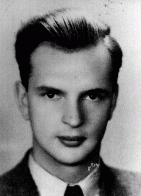You searched for: 外貿推廣seo到需火20星周到【TG飞机:@bapingseo】波兰博彩引流【TG电报:@bapingseo】韓國网赚引流【Telegram:@bapingseo】玫瑰app下载万豪会在线登录入口亚博体育lol注册送28金下载app送18金?20220707H2tlEq.html
<< Previous | Displaying results 551-575 of 653 for "外貿推廣seo到需火20星周到【TG飞机:@bapingseo】波兰博彩引流【TG电报:@bapingseo】韓國网赚引流【Telegram:@bapingseo】玫瑰app下载万豪会在线登录入口亚博体育lol注册送28金下载app送18金?20220707H2tlEq.html" | Next >>
-
Ludmilla Schatz
ID CardLudmilla was one of four children born to Jewish parents in a small industrial city in southwestern Ukraine when the area was part of Tsarist Russia. Ludmilla grew up in Odessa, but she and her mother left in 1919 when Ludmilla's father was killed during the Russian civil war. Ludmilla and her mother emigrated to France and settled near Paris. Ludmilla married, and gave birth to a daughter in 1930. 1933-39: With her knowledge of Russian, French and German, Ludmilla felt comfortable in cosmopolitan Paris.…
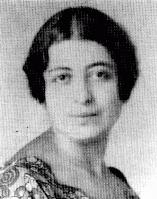
-
Magda Rein
ID CardMagda was the oldest of two children born to observant Jewish parents. They lived in Satoraljaujhely, a town in northeastern Hungary on the Czechoslovakian border. Jews represented some 20 percent of the town's approximately 18,000 persons. Magda's father owned a bakery; her mother was a midwife. 1933-39: At 10 years of age, Magda began accompanying her mother when she attended to births nearby. Her mother helped all women--Jews, Roma (Gypsies) and peasants in the surrounding villages. When Magda was 12,…
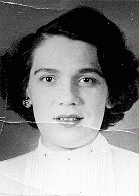
-
Pawel Zenon Wos
ID CardPawel was the oldest of four children born to Roman Catholic parents in Poland's capital of Warsaw. Pawel's father had worked for the Polish merchant marine before starting his own textile business in 1930. The family moved to a comfortable apartment near the Royal Castle and the Vistula River. Pawel excelled in sports, including basketball and tennis. His favorite sport was rowing. 1933-39: In May 1939 Pawel became an army reserve officer and went to training camp near Augustow. On the morning of…
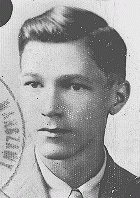
-
Chaim Werzbe
ID CardChaim was raised in a Yiddish-speaking, religious Jewish family in Sokolow Podlaski, a manufacturing town in central Poland with a large Jewish community of about 5,000. The economic activities of most of the townspeople were closely tied to those of nearby Warsaw and surrounding farming communities. As a young man, Chaim liked to play chess and was active in a local Zionist organization. 1933-39: Chaim made a living in the grain business. After settling down, he married a widow who was older than he and…
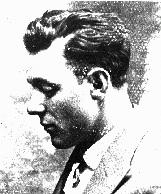
-
Herschel Rosenblat
ID CardHerschel was the youngest of three sons born to Yiddish-speaking Jewish parents. When Herschel was a child, his family moved to Radom, an industrial city which had a large Jewish population. By 1930, Herschel had finished his schooling and was helping in his father's shoemaking business. With the help of a friend, he later found a full-time job as a house painter. 1933-39: Herschel's career as a painter was interrupted for two years when he was drafted into the Polish cavalry at the age of 20. When…
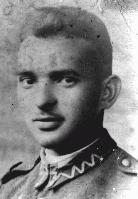
-
Joseph Muscha Mueller
ID CardJoseph was born in Bitterfeld, Germany, to Roma ("Gypsy") parents. For reasons unknown, he was raised in an orphanage for the first one-and-a-half years of his life. At the time of Joseph's birth, some 26,000 "Gypsies"—members of either the Sinti or Roma tribes—lived in Germany. Though most were German citizens, they were often discriminated against by other Germans and subjected to harassment. 1933-39: At age one-and-a-half, Joseph was taken into foster care by a family living in Halle, a city some…
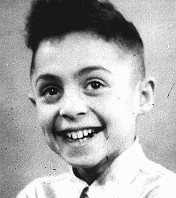
-
Berta Rivkina
ID CardBerta was the youngest of three girls born to a Jewish family in Minsk, the capital of Belorussia. Before World War II, more than a third of the city was Jewish. Berta's father worked in a state-owned factory building furniture, an occupation in which several of his relatives also made a living. 1933-39: Berta and her family lived on Novomesnitskaya Street in central Minsk, only a few blocks from the Svisloch River. Her older sister, Dora, loved to swim there in the summer. By the time Berta was in the…
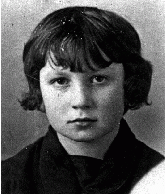
-
Mendel Rozenblit
ID CardMendel was one of six children born to a religious Jewish family. When Mendel was in his early 20s, he married and moved with his wife to her hometown of Wolomin, near Warsaw. One week after the Rozenblits' son, Avraham, was born, Mendel's wife died. Distraught after the death of his young wife and left to care for a baby, Mendel married his sister-in-law Perele. 1933-39: In Wolomin Mendel ran a lumber yard. In 1935 the Rozenblits had a daughter, Tovah. When Avraham and Tovah were school age, they began…
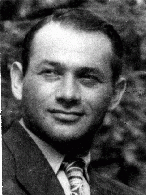
-
Frederik Polak
ID CardFrederik was raised in a religious Jewish home. His father was a scribe of Jewish holy texts. Frederik studied accounting and became a certified public accountant. After his father died, he helped support his three sisters, his blind brother and his mother. When he was in his mid-20's, Frederik married and started his own family. 1933-39: Creating an atmosphere of Jewish observance in the home was important to Frederik and his wife. They loved to celebrate the Sabbath and the Jewish holidays with their…
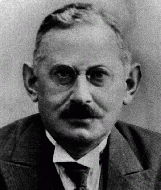
-
Schloma Wolf (Willy) Szapiro
ID CardBorn to a Jewish family, Willy left Poland at age 20 and emigrated to Palestine. He became active in the workers' organization to end the British mandate there. His activities led to his arrest on May 1, 1931. After serving a two-year prison sentence, Willy was expelled from Palestine. 1933-39: In 1933 Willy left Palestine for Austria, where he joined the ranks of the workers' movement. The economic depression in Austria gave momentum to the movement's cause, and Willy and his friends were closely watched…
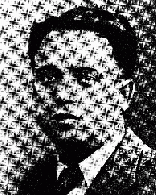
-
Karl Gorath
ID CardKarl was born in the small town of Bad Zwishenahn in northern Germany. When he was 2, his family moved to the port of Bremerhaven. His father was a sailor and his mother became a nurse in a local hospital. After his father died, Karl continued to live with his mother. Karl was 20 when he began training as a deacon at his parish church. 1933-39: Karl was 26 when his jealous lover denounced him and he was arrested at his house under paragraph 175 of the criminal code, which defined homosexuality as an…
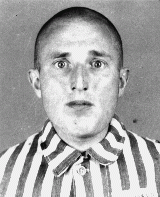
-
Monique Jackson
ID CardMonique's Jewish parents met in Paris. Her father had emigrated there from Russia to study engineering, and her mother had come from Poland as a young child. Monique's father did not have enough money to finish university, so he went to work as an upholsterer. He also shared a small business which sold his hand-tooled leather purses. 1933-39: Monique's mother was 20 when she gave birth to Monique in 1937. Two years later, Parisians were threatened by the possibility of bombing by the Germans, and French…
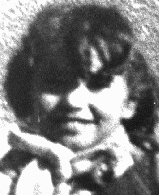
-
Coenraad Rood
ID CardCoenraad was born to a Jewish family in Amsterdam that traced its roots in the Netherlands back to the 17th century. After graduating from public school, Coenraad went on to train as a pastry maker at a trade school. But after completing his training at the age of 13, he decided for health reasons to change professions, and he began to study tailoring. 1933-39: Coenraad finished apprenticing as a tailor in 1937 when he was 20. Then he spent a year working as a nurse in a Jewish home for the permanently…
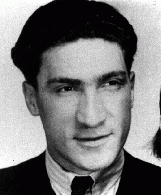
-
Betty Leiter Lauchheimer
ID CardBetty was one of 14 children born to a religious Jewish family in Aufhausen, a village in southwestern Germany. Her father was a successful cattle dealer in the area. On May 8, 1903, at age 20, Betty married Max Lauchheimer, a cattle merchant and kosher butcher. They lived in a large house by an orchard in the village of Jebenhausen. Betty and Max had two children, Regina and Karl. 1933-39: In late 1938 Betty and Max were visiting their daughter in Kippenheim when police arrested Max and their son-in-law.…
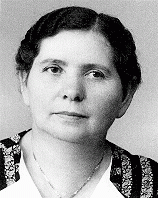
-
Susanne Ledermann
ID CardSusanne was the younger of two daughters born to Jewish parents in the German capital of Berlin. Her father was a successful lawyer. Known affectionately as Sanne, Susanne liked to play with her sister on the veranda of her home and enjoyed visiting the Berlin Zoo and park with her family. 1933-39: After the Nazis came to power in January 1933, it became illegal for Jewish lawyers to have non-Jewish clients. When Susanne was 4, her father's law practice closed down and the Ledermanns moved to the…
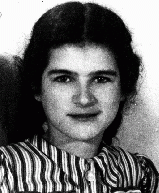
-
Franz Anton Ledermann
ID CardFranz was raised in a town in eastern Germany. The son of Jewish parents, he earned a law degree from Breslau University and a doctorate of jurisprudence from Geneva University in Switzerland. At the age of 35 he married Ilse Luise Citroen, a woman of Dutch-Jewish ancestry. The couple settled in Berlin where Franz had a successful law practice. The Ledermanns had two daughters. 1933-39: The Nazis came to power in January 1933. Ilse's Dutch relatives encouraged the Ledermanns to immigrate to the…
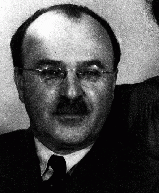
-
Ilse Luise Citroen Ledermann
ID CardIlse was one of four children born to a Dutch-Jewish father and a German-Jewish mother. In 1924 she married Franz Ledermann, a successful lawyer who was 15 years her senior. The couple made their home in Berlin, where they raised two daughters, Barbara and Susanne. 1933-39: The Nazis came to power in January 1933. While the Ledermanns were vacationing in Holland that summer, Ilse's Dutch cousin advised her not to return to Germany. Franz was reluctant to remain in Holland without a job, but when the Nazis…
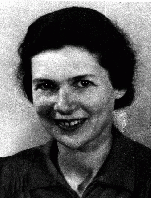
-
Pearl Harbor
ArticleJapan’s aerial attack on Pearl Harbor changed many Americans' attitudes toward involvement in WWII. Learn more about the events, facts, and background info.

-
Frieda Altman Felman
ID CardFrieda grew up in a crowded one-room house in Sokolow Podlaski, a small manufacturing center in central Poland. Frieda's father had died when she was two years old, and her mother had then moved back to her hometown of Sokolow Podlaski, where she opened a poultry shop. The Altmans were a Yiddish-speaking, religious Jewish family, and Frieda was the youngest of four children. 1933-39: German troops entered Frieda's town on September 20, 1939. She was huddling, frightened, with family and friends in a…
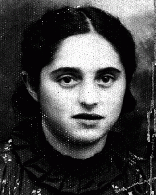
-
Marcu Butnaru
ID CardMarcu was born to Jewish parents in a small, ethnically diverse city in east central Moldavia [in Romania], a region known for its wine. He married at the age of 23, and had a son and a daughter with his wife, Anna. After World War I, Marcu followed in his father's footsteps by going into the wine making business. 1933-39: The price of wine was low due to the worldwide economic depression. Because the quality of Marcu's wine was excellent, however, it still fetched a good price. He spent much of his time…
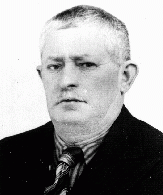
-
Leo Falkenstein
ID CardOne of three children, Leo grew up in the small town of Hochneukirch, 20 miles northwest of Cologne. As an adult, Leo entered his father's cigar manufacturing business, "Isak Falkenstein and Sons." Leo and his wife, Bertha, lived in a house next to Leo's parents. Leo and Bertha had six children whom they raised in the Jewish faith. 1933-39: Leo and Bertha's daughter Johanna has brought her two girls to live with them for a while here in Hochneukirch. Johanna's husband, Carl, has been having trouble…
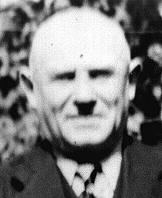
-
Bertha Falkenstein
ID CardOne of two children, Bertha grew up in the small village of Bergheim where her father was a farmer. After she married Leo Falkenstein, the couple settled in Hochneukirch, 20 miles northwest of Cologne. There her husband was employed in his father's cigar manufacturing business, "Isak Falkenstein and Sons." Bertha and Leo had six children whom they raised in the Jewish faith. 1933-39: In 1937 Bertha's daughter Johanna brought her two girls to live briefly with them in Hochneukirch. Johanna's husband, Carl,…
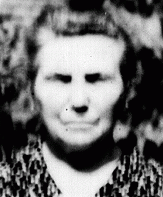
-
Herschel Low
ID CardHerschel was the oldest of four children born to a Jewish family in the Polish town of Ulanow. His father was a landowner and cattle merchant who transported calves from the Ulanow area for sale in other towns. Herschel attended a religious school from the age of 3, and started public school at age 7. 1933-39: Since Herschel was skilled with his hands, his father got him a job weaving reed baskets after he graduated from high school. Herschel was also a member of a Jewish youth organization, Benei Akiva,…
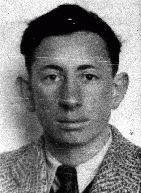
-
Odon Jerzy Wos
ID CardOdon was the third of four children born to Roman Catholic parents in Warsaw, Poland's capital. His father had worked for the Polish merchant marine before starting his own textile business in 1930. When Odon was 8, the family moved to a comfortable apartment located near the Royal Castle and Vistula River. In 1932 Odon began attending grade school. 1933-39: In September 1938 Odon began secondary school. Sensing growing danger from Germany, his father advised him to study German in addition to French. On…
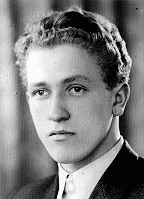
-
Mieczyslaw (Marek) Madejski
ID CardMieczyslaw was the eldest of three sons born to well-to-do Roman Catholic parents in Poland's capital of Warsaw. His father was a real estate developer and his mother was a housewife. Mieczyslaw, or Mieteck as he was nicknamed, began attending public elementary school in 1930 when he was 7 years old. 1933-39: Mieczyslaw's father urged him to study either German or Russian because he thought it was likely that there would be a German or Soviet invasion. Germany invaded Poland on September 1, 1939. During…
